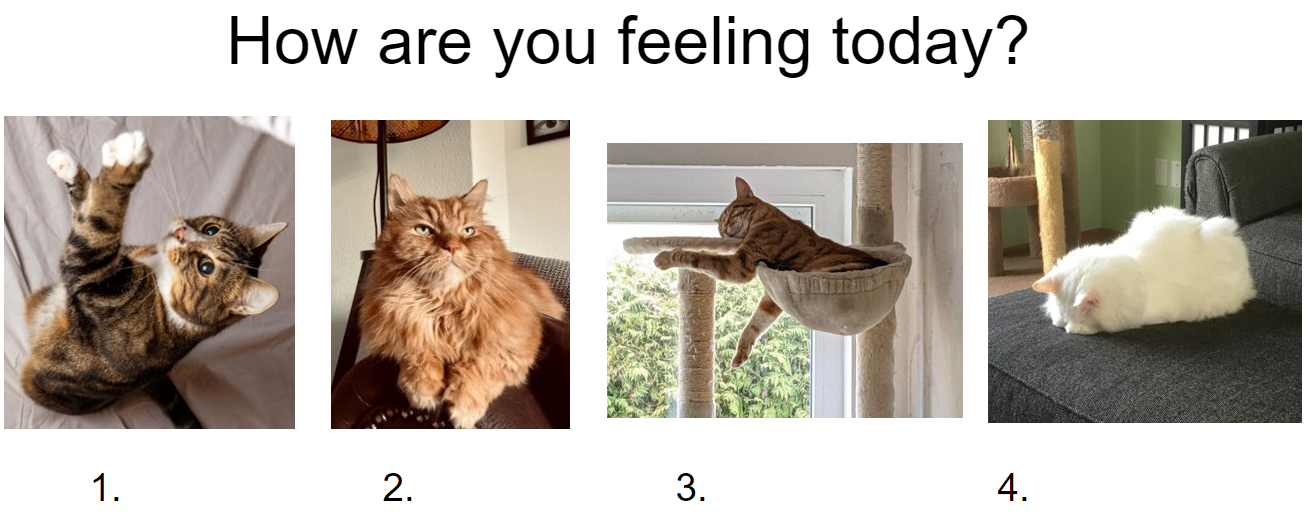By Constance Holman, Tracey Weissgerber, Jelena Brasanac, Marta Oliveira, Martin Holst and Natascha Drude.
The COVID-19 pandemic has reshaped working conditions worldwide, and many researchers were suddenly faced with an abrupt cessation of experiments and direct social contact. These disruptions, coupled with existing pressure and stress in academia, can have serious negative consequences on mental health. It is clear that pandemic-related increases in conditions such as anxiety, burnout, and depression, will have lasting implications for the wellbeing of many, particularly early-career researchers (ECRs).
In February 2021, we brought members of the Berlin research community together in a virtual setting to explore challenges and possible solutions for researchers struggling with mental health during the pandemic. A small group of early- and mid-career researchers and mental health advocates organized a Virtual Brainstorming Event (VBE): an asynchronous virtual unconference where participants participate in in-depth discussions using an online platform. The three-day event included ECRs, PIs/supervisors, and representatives from institutional offices, student services and grassroots organizations working on mental health. We focused on first understanding the mental health challenges faced by ECRs, and next brainstormed pragmatic solutions accompanied by tools and resources. We released handouts and a website in May, describing actions that ECRs and PIs/supervisors can take to improve ECR mental health during the pandemic. In this post, we highlight a few key points. You can find more information, including resources to aid scientists in implementing these suggestions, in our website.
Leading the charge: Recommendations for ECRs, by ECRs
It is okay not to be okay. During the pandemic, many ECRs were faced with new or amplified mental health challenges. These issues are seldom discussed in research groups, leading to feelings of isolation and personal failure. To address these issues, we encourage ECRs to reach out to members of their support network. We also provide a list of different counseling options in Berlin and encourage others to prepare and circulate similar lists for their communities.
Redefine expectations with supervisors/PIs. Redefining expectations is especially important for ECRs who faced major work disruptions during the pandemic, including those who are parents or who had other care responsibilities. We encourage ECRs to document how their work schedule changed, including reductions in working hours. This information may be important for future funding applications and academic age calculations. Months or years from now, it may be difficult to remember exactly how pandemic-related disruptions altered productivity and timelines.
Create or join peer networks. Our VBE highlighted the power of community support in dealing with mental health challenges. Grassroots networks, for example in a lab or institute, can not only provide an informal source of day-to-day support, but also facilitate ECR advocacy. We also provided resources for setting up “buddy” systems in research groups.
Ask for clarification to reduce uncertainty. COVID-19-related changes continue to create uncertainty regarding program or funding deadlines, which are particularly acute for ECRs approaching the end of their degrees, or international researchers with visa restrictions. Working with an ECR network makes it easier to explore solutions within a research group, or advocate for policy clarifications from institutional leadership.
Leave no-one behind: How PIs and supervisors can support the mental health of ECRs
PIs play a fundamental role in shaping a positive and healthy research culture for ECRs and others in the research team. Recommendations for PIs/supervisors revolved around adapting to work disruptions and promoting transparent and open communication with ECRs.
PIs and supervisors need to take care of their own mental health. The pandemic brought a host of new challenges, also for researchers in leadership positions. Being a role model for healthy behavior sends an important message that mental health is a priority in a research group.
Provide clear guidance about which projects/resources will be prioritized amid disruptions. Without this input, ECRs may be forced to choose between competing incentives of social distancing and work required for their career advancement. This places ECRs who have care responsibilities or health concerns at a disadvantage.
Use (online) meeting time wisely, consider new communication formats, and provide clear information about how and when ECRs should approach PIs/supervisors. A proactive approach to communication and problem solving may help diffuse pandemic-related research issues before they develop into large or “unforeseen” challenges.
For a full list of resources and recommendations for ECRs and PIs, please see our website.
Final thoughts
Mental health challenges in academia existed before the pandemic, and will persist after the pandemic ends. The resources from our event may be valuable to both ECRs and PIs/supervisors even after working conditions return to normal. We believe that the COVID-19 pandemic has increased awareness of mental health in academia, and we hope that everyone will continue working to destigmatize discussion, while supporting positive mental health practices for ECRs and others in the research community. There are no simple answers, but we firmly believe that bringing stakeholders together to examine problems and collaboratively explore solutions is a great place to start.
About the authors:
Constance Holman is a PhD student at Charité - Universitätsmedizin Berlin, and currently works as the QUEST Center for Responsible Research on different ways to support early career researchers in improving their science. You can get in touch with Constance via email (mary.holman@charite.de).
Tracey Weissgerber is a Group Leader at Charité - Universitätsmedizin Berlin and former chair of the eLife Early Career Advisory Group. She conducts science of science studies aimed at improving data visualization, statistical analysis, and other factors that affect transparency and reproducibility in scientific publications. Follow Tracey on Twitter.
Jelena Brasanac is a PhD student at Charité - Universitätsmedizin Berlin where she works on studying neuroimmunology of depression and multiple sclerosis. She is also co-founder of Dragonfly Mental Health, non-profit dedicated to cultivating excellent mental health in academics worldwide Follow Jelena on Twitter.
Marta Oliveira finished her PhD at Max Delbrueck Center where she engaged in initiatives to improve graduate students mental health and prevent power abuse in her institute. Today, she collaborates with Dragonfly Mental health, consults research organisations and delivers talks about these topics. Follow Marta on Twitter.
Martin Holst is a PhD student at Charité - Universitätsmedizin Berlin. He works at the QUEST Center for Responsible Research, focusing on assessing and supporting the adoption of Open Science practices. Follow Martin on Twitter .
Natascha Drude is a postdoctoral researcher at Charité Universitätsmedizin Berlin. She works at the QUEST Center for Responsible Research where she accompanies a variety of projects towards clinical translation, including all aspects of experimental design, statistics, (animal) models, and quality management. Follow Natascha on Twitter.







